How We Work Together (part 2)
7 Jul 2014
Randall Hansen

The basis of any book, and particularly books aimed at both an academic and commercial market, is a long lonely slog in the archive and the library. Different authors have different relationships with their agents, but mine involves much close work with Andrew at the start of a book. I generally send Andrew an email with one or two ideas, and he lets me know if he thinks they have intellectual (and commercial) appeal. I follow up with a ten-twenty proposal which provides a summary of what the book’s content (or what I imagine the content will be, as a proposal precedes some research, and much changes in the writing). Andrew provides comments and criticism, and I revise. Andrew then sends the revised version to one-three anonymous readers who provide their views; I revise the proposal again in the light of their comments. The much-revised proposal then goes off the publishers. After much discussion, and if I’m lucky multiple bids, we move to contract. This is the most exciting part of the work; after it, the hard toil beings and some two years later there is a book in the shops.
For a commercial book to be picked up, there has to be a convergence of multiple interests – the agent, editor, the bean counters in marketing, and of course the author. For those reason, a commercial book is much more challenging than a traditional academic book (though such a book is challenging enough), as the latter, safe in the knowledge that library sales will cover the costs of publication and the pittance that passes for an advance, requires only editorial and peer support. Andrew really is instrumental in seeing this process through. It is in theory possible for authors to capture the interest of editors without an agent, but it’s extremely difficult. Equally importantly, whether they are great commercial successes or not, my books are simply better books because of the attention Andrew gives to them.
Catherine Hewitt
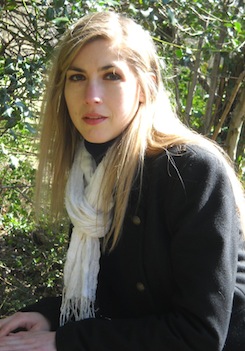
For a new author, an agent - a good agent - is, I believe, essential. In my own case, I came to Andrew’s agency with an idea and boundless enthusiasm. However, my background was academic. Writing biography for general readership was an entirely new domain. I knew I could write and research a thesis, but writing biography is so much more than that: it is a commercial business. This is where Andrew came in.
I feel sure I am not the only new author to enter the profession with much confusion and a plethora of questions. The most immediate of these are practical. Where do I begin? How many pages should a proposal be? How many books should I include in my competing literature section? Which ones? How long should the chapter summaries be? Then there was the invaluable editorial feedback on the proposal itself. Once the proposal was complete, Andrew’s good working relationships with editors was simply indispensable. With the agency on board, I had access to the people who could bridge the gap between me sitting writing at my computer and actually seeing my book on the shelf of a high-street bookshop. And the importance of having someone to turn to who understands and can negotiate the ins and outs of a publishing contract can hardly be overstated.
However, there is also, dare I say it, immense spiritual support to be gained from the agency; if Andrew takes you on, you can be sure that he believes in your work. An author can enjoy the quiet reassurance of knowing that the technicalities (the contract, negotiating, the rights, etc) are being dealt with by someone with experience and competence. Andrew makes this seem so effortless that it is all too easy to take for granted. As a writer, I want to focus on the creative business of writing. Andrew makes this possible.
One day, I receive an e-mail from Andrew with an attachment. He is in Frankfurt and has just spotted a book he thinks might be of relevance to my work. That’s useful, I think to myself. But then I remember - Andrew deals with scores of authors, editors and publishers every day. And yet he remembered what I was working on and took the trouble to keep me up to date of something new on the market. This personal attention is why I am with Andrew’s agency.
Kris Hollington

Andrew is Al to my Dr. Sam “Quantum Leap” Beckett (without the cigars and womanizing) and he makes sure I jump from one life to another with barely a pause for breath. And while I’m working away with the latest agency recruit, Andrew (also Genie to my Aladdin) is securing foreign, audio and film rights (amongst all the usual day-to-day goings-on of agency life) and sending me leads for other work (one such lead has just turned into an article for Newsweek).
Obi-Wan to my Skywalker, Andrew also checks proposals and advises on improvements before he takes them off to publishers for editorial scrutiny. Editors know that when they have a Lownie proposal, they have the book’s complete blueprint.
Every now and again I’ll come across someone who needs an agent – one co-author (a former CID detective) knew an air stewardess who wanted to write a book. It wasn’t one for me to ghost but of course I had no problem recommending the agency. Now after some agency magic, Cabin Fever: The sizzling secrets of a Virgin air hostess, by Mandy Smith (published by agency imprint Thistle) is in the bestseller charts.
It seems to me as though editors, talented and patient, are hard-pushed these days. They increasingly have to divide their time between greater numbers of books in various stages of production, not to mention battle their way through numerous ridiculous legal restrictions (my own bugbear). I’m certain they wish they could spend more time on the actual manuscript but moneysaving publishers have (in some cases) cut resources quite drastically. I do my best not to give them too much trouble.
In essence, the agency does a damn fine job and I never have to worry about contract details and negotiations; I know they’re in safe hands, leaving me to crack on with proposals, books and articles – to write. Like Marty McFly and “Doc” Brown, it’s the perfect partnership (you can’t always predict the future but you know you’re in for a fun ride).
Mary Hollingsworth
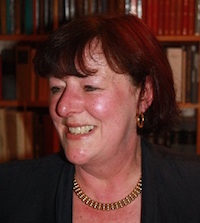
Andrew is not a nanny, more the wise pilot who uses his expertise to steer an author’s work into port. Apart from the practical tasks expected of an agent - negotiating with publishers, checking contracts, sorting royalties, and so on - he offers support at all stages of writing a book. Much depends on the proposal and he ensures that these are written in a way calculated to appeal. As an academic historian, I value his advice on what tooic might make a popular book, and on the best way to approach it. He is meticulous in his attention to detail and immensely hard-working, full of ideas and always ready to exploit new opportunities. Best of all, with Andrew you can expect a reply to your email within hours rather than days.
Christian Jennings
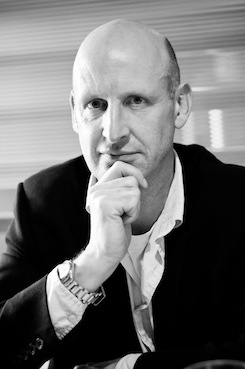
Writers do not seek too hard to be understood, often enjoying a vaguely mysterious elitism, and as a consequence, they often feel misunderstood. A famous Polish nineteenth-century novelist is reputed to have said that “my wife doesn’t understand that when I’m looking out of the window, I am actually working terribly hard.”
So any person who makes it their profession to represent, handle, look after, sell, market and deal with not just one, or ten or twenty writers, but two hundred, on a daily basis, must certainly understand them, what they do, what makes them tick and what they want. Andrew Lownie does this with remarkable success. His authors and his agency work well together for four principal reasons.
Firstly, both author and agent can cooperate in establishing just the right subject matter for each book, its commercial chances, and its optimum form of expression and structure.
Secondly, the agency formula for writing submissions proposals, and having them read by an agency reader, makes the author hone the marketing, publicity and editorial potential of a book long before it gets to an editor. When the time comes to submit it to publishers, Andrew’s canny, focused and up-to-the-minute industry knowledge of which editor where likes what kind of books, at which point, why, and for how much, means that the proposals’ chances in the marketplace are maximized.
Thirdly, Andrew is consistently informed of, and always breaking new ground in such areas as e-publishing, audio, TV and film rights.
Lastly, and other authors comment about it frequently, but Andrew’s speed of response to emails is such that his writers never feel too out on a limb. I remember one summer afternoon in Turin when I needed a scanned page from my latest book contract emailed over by Andrew, so I could forward it to the American tax service. The amount of time that elapsed from writing the email of request to Andrew, to receiving the email scan back in my inbox? Eight minutes.
Rachel Kelly
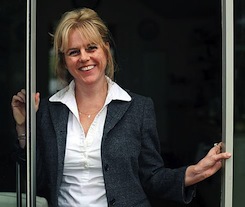
I have long thought the most influential people in life are early adopters. Andrew is an early adopter par excellence. He took a bet on me, a first-time writer, ahead of anyone else. Before I rang Andrew, I had tried approaching a couple of publishers on my own. I got nowhere. My letters weren’t acknowledged, my calls weren’t returned. I now realise that publishers rely on agents to pre-select the manuscripts they are going to read. It is an illusion that your submission will get plucked from a slush pile. It won’t. Don’t believe any publisher who tells you so. Publishers rely on agents to do the choosing for them, and rightly so.
Andrew worked with me ahead of submission to improve my book. He gave me invaluable editorial advice which most publishers neither have the time nor inclination to give. They understandably wish for a manuscript which needs little work. Andrew told me I had too many chapters – I had 32, most non-fiction books have around 18, and that each chapter is between 4,000 and 5,000 words. He told me I needed a new title. He told me how to write my submission and then improved it. And all of this before the book was even sold!
He accompanied me on our ‘publishing tour’, negotiated a deal with Hodder & Stoughton, changed several key elements of the contract, and has been a font of support and advice ever since. All of which I value hugely, but the thing I most value is that he made my book better than it would otherwise have been and thereby got me a publisher as good as Hodder. My dream of being a writer came true and it wouldn’t have happened without Andrew.
Shannon Kyle
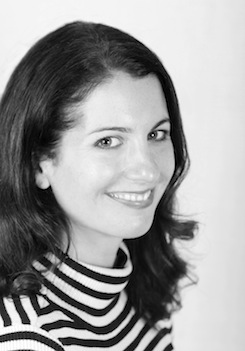
If someone asks me if you need an agent to be a writer, I always reply: ‘No you don’t absolutely HAVE to.’ It’s very possible to publish online and I know of ghosts who sort publishing deals directly with publishing houses, independently with no agents involved. It can happen. But if you would like to progress your career further, have someone to bounce ideas off, give honest feedback and deal with all the minutiae of a publishing deal then having an agent is really a very good idea.
As a ghostwriter, sometimes a person will approach me with an book idea, either through word of mouth or my website and if I think it might have legs, I will run it past Andrew with a phone call or email. If we think a story will work the next step is to write a synopsis. The more thorough, gripping and easy to read it is, the harder it will be for a publisher to turn it down easily. On other occasions Andrew will hear of a project and if he thinks as writer I am a suitable fit he will pass on details and away we go again.
The next step is we all meet an interested publisher together to discuss the project and then offers are made. As a writer you have to place trust in your agent that the very best financial deal is being obtained. During the process if any problems arise, your agent speaks on your behalf and when the book is complete they cheer lead at the end.
Frank Ledwidge
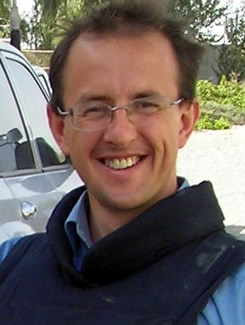
I am the author of two books on our recent wars in Iraq and Afghanistan; I got lucky, quickly, with the responses of readers and reviewers to the books. But as they say you make your own luck, and mine was made when I was referred to Andrew by a friend. Anyone reading this will know, and those who don’t hopefully soon will, how hard it is to start out being published. It’s a bit like the selection courses they do in the military; you get to one checkpoint, exhausted but exhilarated at having achieved something significant only to be told ‘see that peak over there-the one on the other side of the valley, got it? OK, compose yourself; off you go!’ And off you go again. With Andrew, though, or indeed any first-class agent you’ve got someone running next to you helping with the navigation, as well as supplying hints as to how you might save some time and energy and do what you are doing better.
People reading this will have understood that for an author an agent is really essential; all the ‘Starting out as a writer’ books tell you that an agent is necessary. What is not so obvious is that any old agent will not be sufficient. You need someone who is savvy, wise whilst also being able to listen to your ideas and add some more. A good agent will say ‘That’s not going to work’, as well as ‘Good idea, get on it!’
You need to understand that beginning as a writer is also lonely; there’s no getting away from that. I don’t know how Andrew does it, but when you ring him up, you’re the focus; and the writing life looks far more doable after such a discussion than before it. From speaking to many authors who have the ‘necessary’ agent, rather than a ‘sufficient’ one, I know that this is what separates Andrew from the common run.
David Long
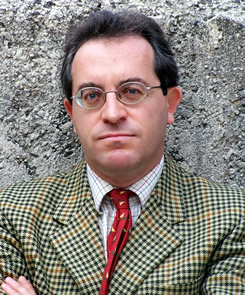
A good agent has always been crucial when it comes to dealing with the commercial side of a deal but increasingly these days having an agent is more or less essential for anyone hoping even to start a conversation with a big publisher, many of whom will no longer consider an author working on his or her own. More than this, however, anyone sitting alone in a room all day needs someone knowledgeable to share ideas with and to bounce ideas around before they go any further. Agents are ideally placed to know what might or might not sell, and better able than most writers to identify the right publisher for a particular project or - delicately - to suggest shelving the project entirely if its time has not yet come or has already gone. Like most authors I like to consider my books to be just that - my books - but eventually the truth dawns. A good book is always a collaborative project, and while an author will share many objectives with a publisher (assuming he has the right one) the value of this seems to emerge only once the manuscript is well underway. Personally I’ve always needed an ally onside long before this stage, and for nearly a decade Andrew has provided the support, the encouragement and the detailed industry knowledge which coming to authorship from 25 years of journalism I know I lack.
Sean Longden

As a writer I want to write: I don’t want to worry about when I’m going to be paid or think about what a publisher wants. Of course those are essential questions but it’s nice to have someone there to answer them for you.
When I come up with a new idea (and I’ve had many more ideas than I’ll ever write books) I want it to be fresh, vibrant and full of all manner ground-breaking material. I want it to be what I consider to be a great book. I can’t be constrained by looking along the shelves at Waterstones and thinking ‘How can I write one of these books?’ If I’d started my writing career by doing that I would never have been published. I need to think ‘These are all boring – I’m going to do something much better’.
Now, while that is good in theory, the real world is a very different place. It’s a place where publishers want writers to give them what they know they can sell, yet are also desperate for something new. And that’s where an agent comes in. I need someone to say ‘That’s a very good idea but what about throwing in X,Y or even Z, to make it more attractive to publishers’. The agent shouldn’t burst the bubble of joyous enthusiasm, felt by every writer who has that light bulb moment and announces their new book is going to be the biggest seller since the bible. Instead the agent is there to help mould the book, encourage the author to turn a flight of fancy into something every publisher will be fighting over. Does it always work? No, but when it does work, it’s a magnificent thing.
Perhaps the perfect agent should be somewhere between a sensuous muse, seducing all the best ideas out of a writer, and the world’s most honest accountant, making sure the writer has the time, space and – rather importantly - finance to come up great ideas.
Teena Lyons
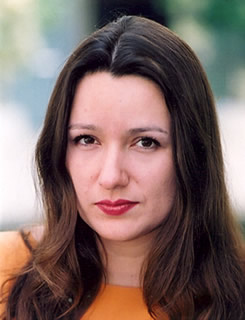
In recent months I have interviewed dozens of other ghost writers for my forthcoming book Complete Guide to Ghostwriting. I found a surprisingly broad cross-section of views on everything from the best way to work with authors, to how to structure a working day and to what contributes to the success of a project, or otherwise. However, there is one aspect of the job where there was near unanimity: a feeling of dread over producing book proposals to present to publishers. Perhaps, if we all had our way, we’d pop in half a sheet of A4 saying something along the lines of: it is the best story you’ve never read, you’d be a fool not to buy it. And that is why we need agents.
Andrew has been my first and only agent, so I can’t speak for the industry as a whole, but the quality in him that is most important to me is the demand for perfection at the proposal stage. Having been brought up in a family where both parents had agents, I’ve always ‘got’ the idea that they take a percentage and negotiate a far better deal that you’d ever have secured yourself. That, to me is a given.
What I value is his judgement at the proposal stage. It has not been unusual for a book proposal to go back and forth between us a number of times. Each time, he will make insightful, astute suggestions that improve the final product. It is not easy to re-write, polish and hone a proposal, particularly when there is no guarantee that it will be picked up and I will be rewarded for my time. However, by going through this process, I am far more likely to succeed. Like anything worth having in life, it is tough, painful, occasionally frustrating, but the rewards are worth it.
Neil McKenna

If you want to be a writer then you need an agent. It’s a simple and inescapable truth. For all those stories of overlooked masterpieces picked from slush piles in publisher’s offices which go on to be world bestsellers, the truth is that for ordinary writers like me, having an agent is a massive advantage.
One of the hardest parts of the process of becoming a professional writer for me was finding an agent. I approached lots of agents. Half the time, I didn’t even get the courtesy of a reply. Once, when I spoke to the agent of a good friend of mine, I found the woman’s tone so hostile and terrifying, that I didn’t pursue it any further.
I came into Andrew’s orbit after reading a short article in ‘Writers’ News’, a magazine for amateur and aspiring writers, the gist of which was that Andrew Lownie was looking for writers with interesting non-fiction projects. I thought to myself, ‘I’m a writer – of sorts – and my project is interesting (or at least, I think it’s interesting)’, so I took the plunge and wrote to him.
Andrew wrote back almost immediately. We met and he took me on. It took Andrew the best part of four years or so to sell my book on Oscar Wilde. He was indefatigable in his efforts and carried on, long after I had resigned myself to not selling the book. It’s an illustration of what Andrew does for his authors. Without Andrew’s bulldog determination, my book on Oscar Wilde would not have seen the light of day. As it is, it’s still in print eleven years on.
Apart from dealing with and resolving the day-to-day complexities of contracts, overseas rights, e-book hassles, copyright infringements and byzantine royalty statements that make no sense, Andrew is importantly a key player in the creative side of my writing. He is a distinguished biographer in his own right which makes him almost unique agents because he knows what you’re trying to do creatively from the inside.
Andrew’s instincts are sure. He has a feel for the business of publishing and a feel for books and writing. I value his opinions enormously. Most importantly, I know he is on my side and that is a very comforting feeling when the going gets tough!
Clare Mulley
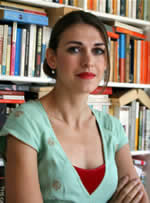
My first biography, The Woman Who Saved the Children, was a labour of love. When I started writing it I had little idea how publishing worked, or even how to structure the book. Fortunately Andrew did. Andrew, and his team of readers, helped to guide the development of the book, and then he secured my first publishing contract.
Since then he has hugely helped to develop my career. I am now ‘an award-winning biographer’ with my latest book, The Spy Who Loved, translated into three languages, out as an audio-book, and optioned by Universal Films. I review for The Spectator and History Today, write articles, give talks and, occasionally, appear on radio and TV. I could never have achieved this without Andrew.
Sometimes Andrew’s help is very simple; he gives a reliably fast reply to an emailed query about a contract or an interview. Sometimes his help is more profound. Knowing my interests, it was he who suggested the subject for my second book, Krystyna Skarbek, aka Christine Granville, the first woman to work for Britain as a special agent in WWII. At first I baulked at the idea – it felt like a blind date, and I wanted to find my own subject. But Andrew was right and it turned out to be a great honour, as well as a great adventure, to research and write Christine’s story.
Several of my writer-friends have agents who sound very lovely. They have long lunches together and talk about everything under the sun. Andrew is not like that. We do meet occasionally, and have been known to have lunch, but both of us are very busy. I have three children, and I don’t live in London. What I want and need is a very focused agent who is respected by the best editors and publishers in the UK and overseas; has excellent contacts in film and TV; a great team of readers who can comment on my developing book proposals; and the commitment to me that means I know they will respond to my queries promptly and wisely, and come up with new suggestions that I had not considered. Andrew provides all this, and I have learned to trust his judgment and value his advice immensely.
Susan Ottaway
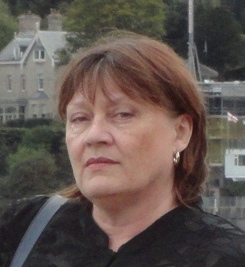
Andrew has been representing me for three years – the best years of my writing career so far. My first book was published 20 years ago with the help of an already established author but, although I managed to find publishers for my subsequent work, it was an uphill struggle. I wanted to be a writer but found myself becoming more of a sales rep, selling my ideas and myself as an author without really knowing how best to present either. As an individual it was hard to get a deal of any kind, much less a good one.
Having an agent, especially an excellent one like Andrew, has changed everything. He not only listens to my enthusiastic ramblings, he makes suggestions for possible books and then discusses ways to present the ideas to their best advantage and even suggests research facilities and people to contact. He’s a hard task master when it comes to writing proposals and often rejects my first attempts but he is right in what he says and I can see that the version which eventually gains his approval is so much better than my original offering. He is always encouraging and constantly reinforces the good parts while seeking to improve those that are not so good so I never feel too disheartened. The number of books he places with publishers is amazing and yet, although he works so hard, I hardly ever have to wait for a reply to an e-mail or to talk to him on the phone and he is always helpful and friendly. I really feel that Andrew, however busy he might be, is more than an agent, he is a friend who is looking out for me and I feel privileged to be one of his authors.
Nick Pope
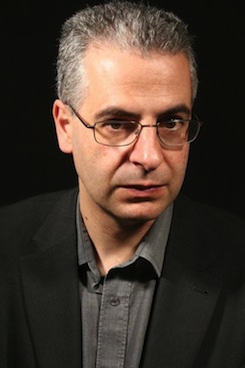
The first thing an author looks for – or should look for – in a literary agent, is good advice. Andrew Lownie is a published author himself, and having operated on both sides of the industry, has invaluable experience to pass along. At the early stage of the authorial process, in conjunction with a network of ‘readers’ who have expertise in just about every subject and genre you could imagine, Andrew will help with invaluable guidance on crafting a synopsis in such a way as to maximise the chances of getting a deal. More fundamentally, he’ll help with the delicate business of working out which ideas should be aggressively pursued, and which should be quietly dropped.
There are many different strands to the work of a modern literary agency. All authors are different, but in my case, Andrew has done far more than simply negotiate deals for my five books – two of which made the Top 10 hardback non-fiction list. He’s negotiated serialisation deals, translation rights, a film/TV option deal for one of my sci-fi novels, and much more besides. I emigrated to America in 2012 and wondered if this would be an issue. It wasn’t. My latest book was published by a US publisher, and in parallel, I came onboard with the agency’s new imprint, Thistle Publishing, which can handle e-books and print-on-demand.
I should make special mention of the agency website. Andrew uses it to share some of the knowledge and experience that he’s amassed, and also publishes guest articles from other people in the publishing world: authors, ghostwriters, and even commissioning editors explaining what kind of books they’re currently looking for. In parallel with the “How to Submit” section, this is just about the most valuable advice available to authors, be they novices or ‘old hands’.
Linda Porter
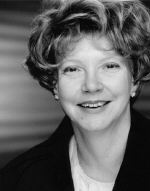
I rely on the agency to handle the ‘nitty-gritty’ of contracts and royalties and I’ve also found that Andrew keeps a keen eye on potential competition. His unobtrusive support, over many years, is particularly valued at times of personal or professional uncertainty. Writing is a lonely occupation and it is good to know that the agency will be there for you when you need it. Times are changing in publishing and Andrew is well-abreast of all that is going on.
Katharine Quarmby
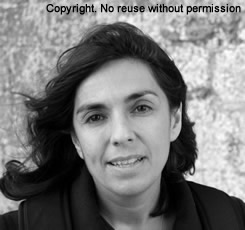
Andrew is a benign presence in my life as a working writer and journalist, always encouraging me to work a little harder and be that bit more ambitious. I can hardly say no, as he and his partner on his fiction list, David Haviland, work so hard for their authors - both in the traditional sphere of meeting publishers and visiting book fairs, but also on social media and exploring new genres as agent-entrepreneurs.
Since I first met Andrew, when I was working as a correspondent at the Economist in 2006, I have published two non-fiction books with him, (Scapegoat and No Place to Call Home) and branched out into Kindle Singles - one memoir, Blood and Water about my search for my Iranian birth father - and my first fictional piece, Aftermath, about my experiences as a producer in Rwanda, after the genocide. We are now about to publish another fictional Single, again based loosely on historical fact, about my mother’s family in Yugoslavia, during the First World War, and their links to Gavrilo Princip.
Andrew has also encouraged me to explore new genres - I have spent much of this year writing my first ghost project, under his careful eye. He and David have also sold the rights to my memoir and my Rwanda story to Audible and introduced me to the good folks at Newsweek, where I am now a contributing editor. It is a hugely productive relationship - and it has to be, as publishing and journalism change and have become more competitive and more dependent on the agent and the individual writer marketing themselves. Andrew and David, at Thistle, their publishing arm, are a fantastic team. I feel I couldn’t be in better hands in extremely challenging, but exciting times for British journalism and publishing.
Neil Simpson
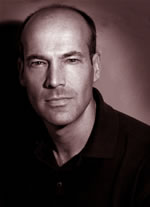
If you’re better at words than figures then you need an agent like Andrew Lownie. If you’re a bad negotiator and hate haggling about money then you need an agent like Andrew Lownie. If you want to carry on making a living in an increasingly difficult publishing environment then, well, you probably get the drift.
In my ideal world I’m given a subject, a deadline and a decent contract to sign. Then I go away and get the job done without having to waste a second on any legal or financial questions. Writing can be tough, even when your subject is great fun. So why make it worse by fighting those sorts of battles on your own?
I rely on Andrew getting my ideas, proposals and indeed my name in front of the right people. I rely on him extracting the best deal he can from them. I like him going the extra mile by aiming for TV and film rights on the books we’ve done together. And I know he’s always looking for the next good deal. So what would I change? Nothing at all.
David Stafford
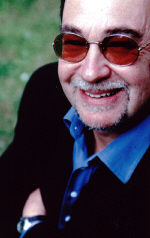
Why bother with an agent? is a question I’m sometimes asked. It still puzzles me given that it certainly comes from people who’d never hesitate to employ a realtor to buy or sell a house, or a lawyer to negotiate a legal issue. But I bite my tongue and say instead something along the lines that while a writer can produce a text it takes an agent to help transform it into a saleable book that that can make money. And that if you’re in the business of writing- and a business it is- you have to think of it as a team affair. You dream up the idea for a book; but before you’ve even written it, it’s the agent who tells you whether it’s likely to sell or not. In fact, it might even be the agent who comes up with the idea in the first place. Then you write up a proposal, and it’s the agent who gives you the vital critical feedback that leads you to revise and improve it, perhaps several times over. It’s the agent who then sells it to a publisher in what is a highly competitive market; without an agent it’s virtually impossible to catch the eye of a commissioning editor. And of course it’s the agent who negotiates the best possible contract that will earn you both some serious money and protect your interests in what is a complex business that only experts can master. I’ve been with Andrew Lownie’s agency for over twenty years, and through his close personal involvement with me and my books Andrew and his team have delivered superbly well. I write the words. He turns them into the money. What more could one ask?
Nicola Stow

I was relaxing on a beach in Portugal when Mandy Smith’s memoir, Cabin Fever: The Sizzling Secrets of a Virgin Air Hostess, reached number 11 on Amazon. I ghosted this book so, obviously, I was thrilled - and it was the perfect excuse to order a large Del Boy -style cocktail complete with mini umbrellas and sparklers.
But as I downed my drink and worshipped the sun, Andrew, David and Mandy, along with other industry individuals, were working behind the scenes to generate mass publicity for Cabin Fever. The book was first published in Australia and, thanks to the agency’s imprint, Thistle, we were then able to publish Cabin Fever in the UK.
As the book went live, Andrew worked his magic, securing serialisation deals with two national newspapers. A good friend and fellow ghost , Doug Wight (former News of the World Books Editor), then joined the team and was responsible for writing a cracking serial for the Sun newspaper. In fact, it was Doug who introduced me to Andrew - a brilliant move, I must say.
As the publicity mounted, Mandy hit the shops - a few new outfits were required for television interviews. She also found herself dealing with newspaper journalists and radio show hosts. In order to help organise Mandy’s hectic media schedule, Andrew brought another agency ghost and publicist, Emma Donnan, on board, which led to even more publicity.
As I’m discovering, there’s a lot more to this book-writing business than many people imagine. Even when the book is published the hard work continues. Promotion is the key, as we proved with Cabin Fever. A few days after that wonderful Amazon moment, while I was still sunning myself in the Algarve, I received an email from Andrew. He’d just sold North American rights for Cabin Fever to Penguin. I think I’ll have to buy him a large cocktail next time I see him.
Peter Thompson
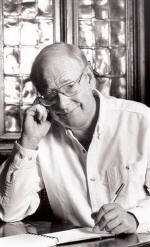
In an emergency, there’s always the SAS – the Special Andrew Service – to tackle all manner of problems. For ten years between 1998 and 2008 I roamed the globe each year on an around-the-world ticket writing books on World War II. Andrew would receive an urgent phone call or email from New York or Sydney or Singapore or Crete relating to a lost air ticket (in the days before e-tickets), a lapsed visa, depleted funds, missing page proofs and so on. The great machine behind the purple door in Great Smith Street would swing into action and in what seemed like a matter of hours the problem would be solved. No matter what the time difference or how complex the issue he always seemed to be there and a concise reply would wing its way back to my hotel.
Andrew not only suggests subjects for my books, finds a publisher, deals with the contract, edits the ms before submission and manages the money, he also offers an outlet through his own imprint, Thistle, which began life back in the 1980s with a smart box set of John Buchan’s work and is now in the expert hands of David Haviland. Now, Andrew, about the cover for The Private Lives of Mayfair….
Mei Trow
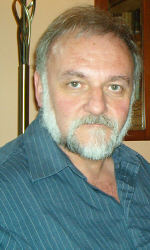
I still dine out on my first meeting with Andrew. He was then with a large London agency and was going solo the following week. Did I want to stay with them or go with him? I chose to go with him – the best writing decision I ever made. Years down the line – he introduces me as his ‘oldest writer’ but I’m not the sort to hold a grudge! – I am still being spurred on by his enthusiasm and publishing savvy.
When preparing a proposal, Andrew always reminds me that bullet points are Good Things, so here are a few –
• Andrew works 24 hours a day, 7 days a week. (So do I). • Andrew knows everybody! • Andrew is in tune with the market and has a nose for a good story. • Andrew is infinitely patient, not just with me, but with all those who contact him with a book in them, no matter how deeply hidden it might be.
Good agents are like hens’ teeth and Andrew has a full set! Whether I am ghosting under his auspices or writing my own stuff (non-fiction and fiction), his unassuming expertise is there for me. Today’s market may be difficult and publishers seem to want more and more for their money, but Andrew still knows the secret path to what they are looking for and more often than not seals the deal.
When we met, I had a couple of novels to my name and a true crime book brewing. Now I can list over sixty books as diverse as a ‘gift book’ about swearing in World War II, a pictorial history of Jack the Ripper, a Dummies history book, historical biographies, ghosted memoirs and over thirty novels. Without Andrew’s enthusiasm and gentle encouragement I might have done none of the above and might have been driven to doing the gardening and playing bowls to fill my time – for that reason if for no other (and there are many others) I am glad I decided as I did at that lunch so many years ago.
Casey Watson
As a relatively new author to camp Lownie – around three years, I can still recall the mad blur of suddenly realising that I would no longer be a wistful writer, carefully preserving my innermost thoughts and ideas in shoe boxes, desk drawers and later on, computer hard drives, I was actually going to become a fully fledged, agented author. I remember sending Andrew my very first query letter, which in hindsight wasn’t up to much at all, and being thrilled when I got back an almost immediate response. Having been used to what I’m sure every other writer will understand, the isolation of being a writer, the knowledge that your nearest and dearest indulge rather than understand you, I was completely surprised to find that I was now being drawn in as a member of a team. A team who understood exactly what I wanted to do, and who knew exactly what to do in order to make it happen.
It was the start of a journey that has never ended and it started, would you believe, with a bidding war. The agency organised two afternoons of a kind of ‘meet and greet’ with some of the publishing houses that I’d only ever dreamed of being part of, and despite my nerves, I must have done something right, because all but one of the editors we met were interested in what I had to write about.
Since then, all I’ve had to really worry about is doing what I love doing, writing books. Andrew does all the hard work such as negotiating new deals, ensuring payments are made promptly and correctly, sorting out royalties and endlessly looking for new outlets. The agency keep us all informed on how our books are doing in the market and carefully watch for new trends. We get told about who’s who in the publishing world and the kinds of things they are interested in, and of course the website is a mine of information.
In all I would say that the partnership between an agent and an author is vitally important and enables a writer to concentrate on their creativity rather than having to worry about the business of books.
Katy Weitz

‘Andrew, it’s Katy!’ I nearly shout down the phone. It’s 8.30am on a Monday morning and yes, Andrew has answered his own phone.
‘Katy! Hi!’ the response is always warm, delivered with a smile, as if I’m the very person he has been waiting to speak to all morning.
I blather on about an idea I’ve had for a book – the star of a Sunday night reality show. I’m eager, enthusiastic, like a puppy with a new toy.
Fortunately, Andrew is always willing to match my enthusiasm beat for beat, and take things one step further.
‘Brilliant idea Katy! I watch the show too – it’s great isn’t? Yes, he’d be perfect. I’ll call his agent and set up a meeting between us all.’
Now it just so happened that this particular project didn’t go ahead – but it wasn’t for lack of trying on either our parts and frankly, if I’m being honest, I’m secretly quite pleased the project didn’t make it. The ‘star’ in question was a mercurial, inconstant character who had a rocky relationshipwith the truth. Well, nevermind.
The point is – Andrew was ready to take up the baton at the drop of a hat and move us all forward. And this is not an isolated event.
In the 16 months he has been my agent we have worked on several projects, and landed three book deals. Not only does he willingly take up most of my ideas, and help shape and hone them until they are ready to be presented to editors, but he has also delivered some winning collaborations to me. One lady had approached him with an idea that she wanted to write her memoirs and yet, with a very poor educational background, she had been unable to fully voice her thoughts and memories.
Frustrated, she had turned to Andrew who had sent her collection of writings to me. I saw what he saw – a wonderful story that simply had to be told.
There were bumps along the way of course – one night, after a damning reader’s report of my proposal, I called him at 11pm in despair.
‘I don’t want to give up on it!’ I wailed. ‘I know there’s something good here.’
‘Okay,’ he replied thoughtfully. ‘Then sit down and see if you can focus in on what this book is really about. What is the high concept here? Send me a few hundred words and we’ll take it from there.’ I did as I was told – and amazingly, it came to me. The end result was a story auction which ended in a brilliant deal with one of the world’s leading publisher’s.
Which just goes to show that Andrew knows what he’s doing, right?
And this I find amazingly comforting because, for the most part, I’m winging it.
This is always brought home to me in ‘meetings’ – being someone who has an almost allergic reaction to meetings I become nervous, stupid and sweaty whenever I am called to attend official gatherings of any kind.
Yes, I realise they are vital for any business but really, they’re not my thing.
They are, however, Andrew’s! I’ve been in meetings with him where he has charmed us all with his relaxed and chatty manner, quick thinking, clever ideas and ability to draw out everyone’s best bits. So… to sum up:
Thanks to his years of experience, warmth, wit and forensic knowledge of the industry, Andrew is capable of helping a writer to grow and develop, and best of all, land deals.
He fights your corner financially, pushes you towards your goals and is always interested in your work. I don’t know if every agent is like this – I rather suspect not and if yours isn’t then you have to ask yourself if you have the right agent.
I could go on – actually, I’ve already gone way over the suggested word count for this article – because there are so many little ways that make working with Andrew an absolute joy.
Looking back, I can’t believe I resisted getting an agent for so long –our first ever telephone conversation went like this.
‘Hello Andrew – my name is Katy. I’m a writer – the thing is, I’m not really sure I need an agent…’ ‘Oh, I think you do.’ Right again.
